



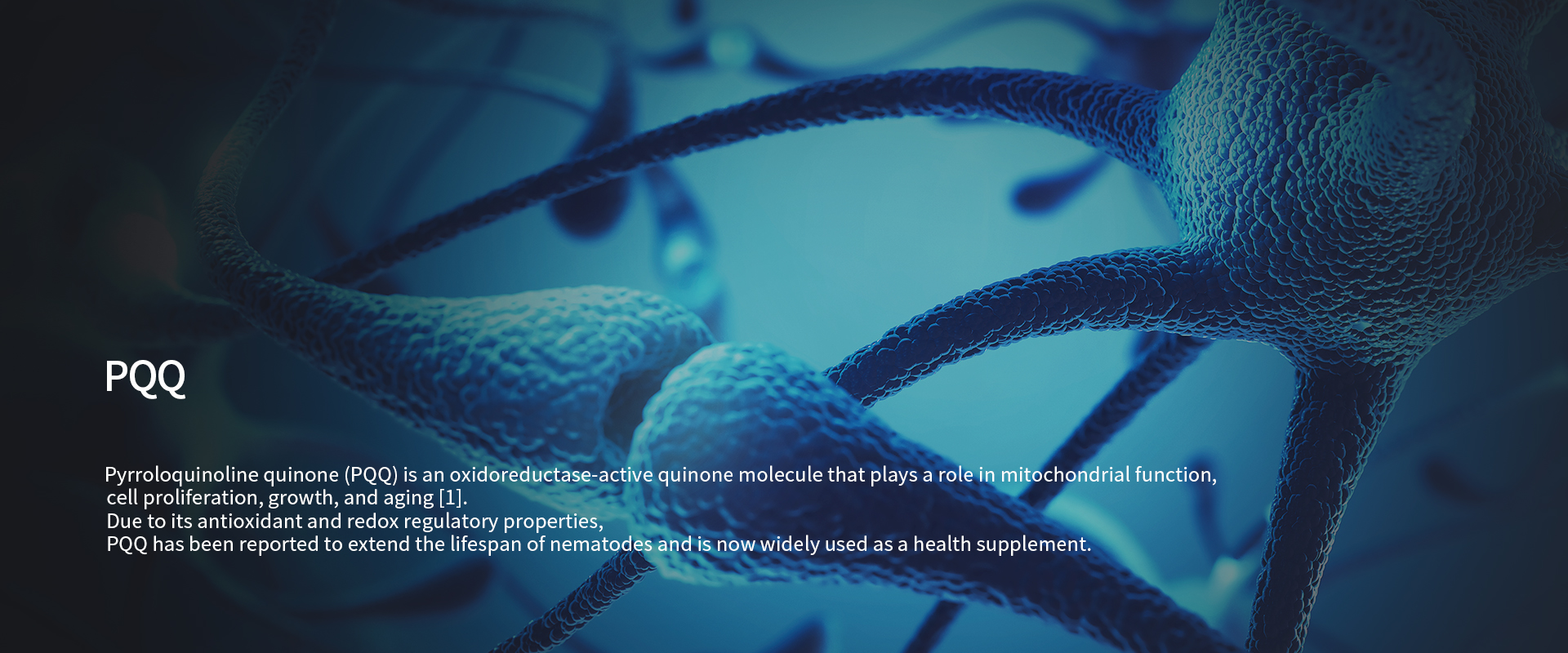
Molecular weight: 330.206
Molecular formula: C14H6N2O8
Appearance: Reddish brown fine powder
Solubility: Soluble in water, slightly soluble in ethanol
Specifications | 99% |
Particle size | 120 mesh |
Appearance | Fine reddish-brown powder |
CAS. No. | 72909-34-3 |
PQQ serves as a cofactor for many different enzymes
In the human body, PQQ plays a crucial role in regulating lactate dehydrogenase (LDH). LDH converts pyruvate —— glucose into lactic acid, which helps cells generate energy in low-oxygen conditions. PQQ can slow down this reaction, allowing lactic acid to be produced without compromising energy production. It also increases the concentration of coenzyme NAD, stimulating mitochondrial production. Mitochondria provide more energy to cells, slowing down cellular aging. Additionally, PQQ has excellent health benefits for conditions such as Alzheimer's disease, Parkinson's disease, and chronic fatigue syndrome.
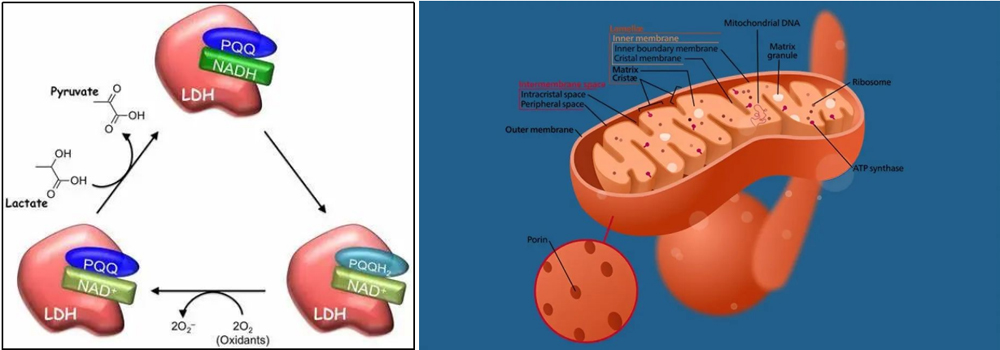
2. Powerful Antioxidant:
PQQ is also a potent antioxidant that helps cells resist the damage caused by oxygen free radicals. Throughout its life cycle, PQQ can undergo 20,000 catalytic transformations, which means it can protect cells up to 20,000 times.
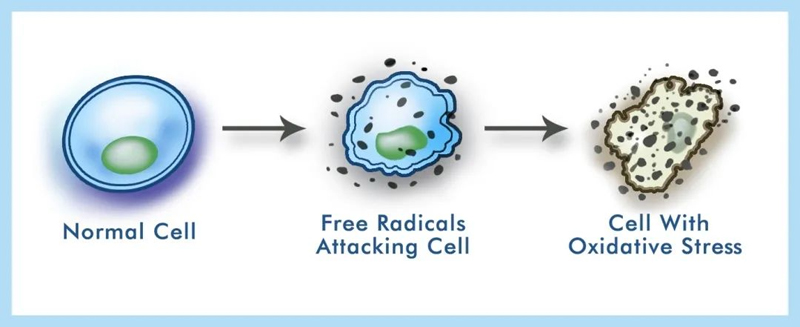
3. Neuroprotection:
It has been found that PQQ modifies NMDA receptors to make them less susceptible to glutamate-induced toxicity, thus protecting the nerve. This finding suggests that PQQ has neuroprotective effects and can reduce the incidence of stroke, traumatic brain injury and neurodegenerative diseases.
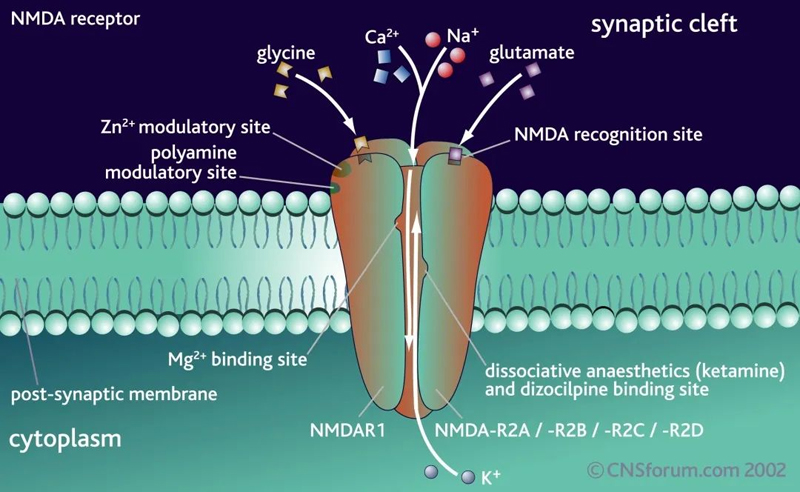
(Photo by www.jonlieffmd.com)
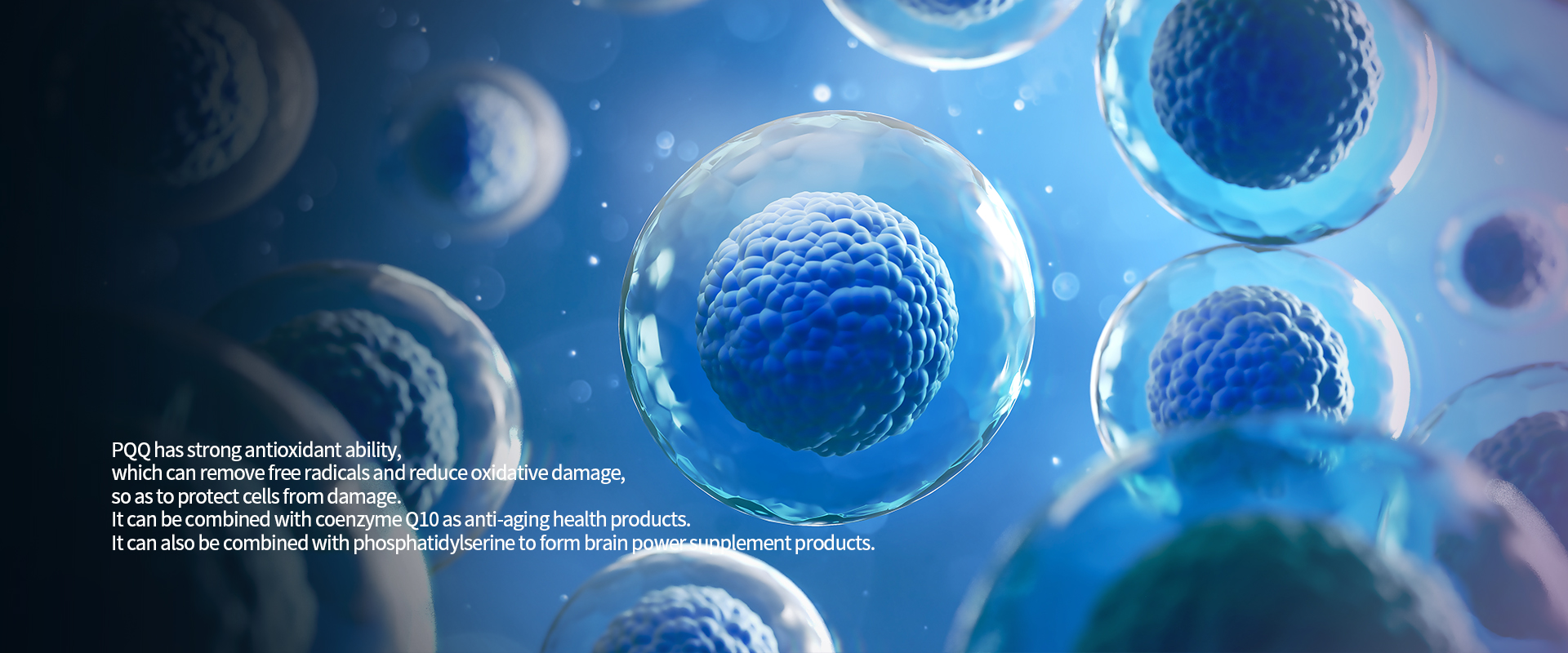
Inside: Double PE bag / Aluminum foil bag
Outside: 25kg/drum
Storage conditions: Preserved in cool and sealed container, aovid heat and directly light.
Interested in our supplements? Get your personalized quote now!
 Call us on:
Call us on:  Email Us:
Email Us:  Office Add:
Office Add: